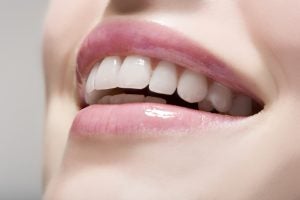-
Foods and Drinks that Erode Teeth

You try to stick to a healthy diet, avoiding sugary sodas and sticky candies that can damage your teeth. However, sometimes even healthy foods can cause tooth erosion. It pays to be mindful of the signs of eroded tooth enamel and avoid foods that can negatively impact the health of your teeth.
First, what are the symptoms of tooth enamel erosion? You might notice that your teeth feel sensitive when you eat or drink something hot or cold. You might also notice that your fillings or even your teeth have changed color. If your enamel erodes to an extreme degree, you might lose a tooth or develop an abscess. So, what foods should you avoid to prevent these problems?
- Citrus Fruit: The high acid content in citrus can damage your teeth. In fact, even things with citrus flavoring can wear down your enamel.
- Tomatoes: Tomatoes are good for your body, but they can be rough on your teeth. This is because they’re acidic. If you eat tomato sauce on pasta, you’re doing your teeth a double disservice, because the tomatoes break down your enamel and the carbs in pasta feed cavity-causing bacteria.
- Dried Fruits: Even though it’s nutrient-dense, dried fruit can damage your teeth. It’s sticky, and has sugar, so if you don’t immediately get all that sticky fruit off of your teeth, the sugar will erode your enamel.
- Carbonated Beverages: Even when they’re sugar free, soft drinks have carbonation that can wear away your enamel. You’re better off with unsweetened tea or water, but if you do drink soft drinks, don’t brush immediately. You might think that cleaning the soda off of your teeth immediately is a good idea, but brushing after your enamel has been weakened by carbonation can erode it further.
- Pickles: Because of the acid required for the pickling process, pickles can cause staining and tooth erosion. Some pickles also have sugar, which makes them even more likely to cause cavities.
- Wine: Both white and red wine have enamel-softening acid, but red wine also contains compounds called tannins that can dry your mouth and stain your teeth.
- Sports Drinks: These beverages are high-carb, sugary, acidic, and thick enough to stick to your teeth.
- Crackers: Because they’re refined carbohydrates, crackers can cause inflammation in the body. Crackers also stick to your teeth, which can promote tooth decay.
- Sugar: Of course, you’ve known since childhood that sugar causes cavities. It’s important to note, however, that sugar isn’t only found in sweet treats, but also in processed foods.
At Park 56 Dental Group, we offer pediatric, prosthodontics, endodontics, oral surgery, Invisalign®, emergency, and sedation dentistry, all at the highest level of treatment. We serve the Midtown, Central Park, Upper East Side, Park Avenue, and all surrounding Manhattan and New York areas, with a patient-centered practice that has hours to fit your schedule. Schedule your complimentary consultation today by contacting us online or calling us at (212) 826-2322.
-
How to Overcome Dry Mouth

Does your mouth feel uncomfortably dry? Many adults suffer from dry mouth, known medically as xerostomia or hyposalivation, which happens when the salivary glands don’t produce enough saliva. It’s a problem, because saliva is necessary for washing away debris and protecting your mouth from harmful acids. Without enough saliva, the mouth is vulnerable. Causes of dry mouth vary, but sometimes home remedies can provide some relief.
First, let’s discuss possible causes of dry mouth. It could be as simple as dehydration, or it could be the result of a medication you’re taking. Smoking can cause dry mouth, as can drinking alcohol. Sometimes, though, dry mouth is the result of a medical condition like diabetes, kidney disease, Parkinson’s disease, immune/autoimmune disorders, anxiety or depression, anemia, or nutritional deficiency. If you think your dry mouth might be the result of an illness, see a doctor to rule it out before trying these home remedies.
- Hydrating can alleviate dry mouth. Drinking water can help with mild dehydration, and it can also rinse your mouth if your saliva isn’t getting the job done. Limit your caffeinated and alcoholic beverages, as these can be dehydrating.
- Mind your dental products. Don’t choose a mouthwash that contains mouth-drying alcohol. Instead, look for one created to help alleviate dry mouth. Ask your dentist if a prescription fluoride toothpaste, rinse, or gel might be beneficial.
- Try sugar free candy or gum. Chewing gum or sucking on hard candy can increase the flow of saliva. Just be careful to choose sugar-free products, because a dry mouth is more susceptible to cavities. Look for gum with the ADA seal of acceptance.
- Use a humidifier to moisten your mouth. Breathing in dry air doesn’t help a dry mouth, so use a humidifier, especially when you’re sleeping.
- Breathing through your nose may help. Breathing through your mouth can cause it to become dry, so if you’re having trouble breathing through your nose because of congestion or allergies, talk to your doctor.
- Don’t smoke. Smoking cigarettes actually slows down saliva production. For a healthy mouth, avoid all kinds of tobacco products.
- Try some over-the-counter products for dry mouth. There are many different saliva substitutes on the market, from sprays to rinses to specially-formulated toothpastes. Just be aware that these may not be a good long-term solution.
- Take your vitamins. Vitamin supplements, particularly vitamin C and vitamin B complex, can help with inflammation and boost your immune system, which may help alleviate dry mouth. There are also a number of herbal remedies for dry mouth, including aloe vera, ginger, hollyhock root, and marshmallow root.
Whenever you have a question about your oral health, it’s good to have a dentist you can trust for answers. At Park 56 Dental Group, we offer pediatric, prosthodontics, endodontics, oral surgery, Invisalign®, emergency, and sedation dentistry, all at the highest level of treatment. We serve the Midtown, Central Park, Upper East Side, Park Avenue, and all surrounding Manhattan and New York areas, with a patient-centered practice that has hours to fit your schedule. Schedule your complimentary consultation today by contacting us online or calling us at (212) 826-2322.
-
Oral Cancers of Which to Be Aware

You know that visiting your dentist regularly can help protect against cavities, but did you know that these regular checkups can also help protect you from cancer? During a routine dental visit, your dentist will screen you for signs of oral cancer. This is important, because the earlier cancer is detected, the easier it is to fight. Do you know about the different types of oral cancers?
- Lip Cancer: The most common oral cancer, lip cancer primarily affects men. People sometimes miss the common symptoms of lip cancer because they think it’s a cold they can’t shake or a toothache. Be vigilant for signs of lip cancer, including a sore on the lip that doesn’t heal, persistent lip pain or numbness, a lump, thickening, or white or red patch on the lip, or a neck mass. Surgery is often the first step in treating lip cancer, but it’s also treated with radiation therapy, chemotherapy, and targeted drug therapy.
- Mouth Cancer: This cancer can develop in any part of the mouth, including the tongue, gums, and lips. As with other types of oral cancer, symptoms can seem like a cold that won’t go away. They also include continual tongue or jaw pain, a thickening or lump inside the mouth, a red or white patch on the gums, tongue, tonsil, or the mouth’s lining, or trouble swallowing or chewing. It might be hard to move your jaw or tongue. If surgery is performed to remove a tumor from the mouth, it may be necessary for the surgeon to reconstruct part of the face afterward. Doctors also use radiation, chemotherapy, immunotherapy, and targeted drug therapy to fight mouth cancer.
- Tongue Cancer: Tongue cancer forms in the front two-thirds of the tongue. If cancer forms in the back third of the tongue, it’s considered a kind of head and neck cancer. In addition to the typical oral cancer symptoms, tongue cancer causes tongue or jaw pain, a thickening or lump in the mouth, a sore throat, or the feeling that something is stuck in the throat, difficulty chewing or swallowing, or a white or red patch inside the mouth. Sometimes tumor resection for tongue cancer can be minimally invasive. Chemotherapy, radiation, and targeted drug therapies are also treatment options.
How can you reduce your risk of oral cancers? A healthy lifestyle can help. Don’t smoke or use any other tobacco products, and limit your alcohol consumption. Maintaining a healthy weight, eating a nutrient-dense diet, and protecting yourself from UV rays are all things that help your overall health and lower your risk of oral cancer.
At Park 56 Dental Group, we offer pediatric, prosthodontics, endodontics, oral surgery, Invisalign®, emergency, and sedation dentistry, all at the highest level of treatment. We serve the Midtown, Central Park, Upper East Side, Park Avenue, and all surrounding Manhattan and New York areas, with a patient-centered practice that has hours to fit your schedule. Schedule your complimentary consultation today by contacting us online or calling us at (212) 826-2322.
-
Why You May Still Have Bad Breath Even After Brushing and Flossing

You brush, you floss, you rinse, and you may even chew gum. So why do you still have bad breath? Bad breath, also called halitosis, is an embarrassing condition. It commonly comes from different parts of the oral cavity, but can sometimes be caused by an underlying health issue. How can you identify the cause and get rid of bad breath? Let’s look at some common scenarios that lead to halitosis.
- The most straightforward cause of bad breath is a dirty mouth. You’ve probably already tried brushing and flossing, but let’s discuss it just to cover all the bases. Bacteria, food particles, and mucosal cells your body sheds in your mouth can all lead to bad odors, so brushing thoroughly is your first line of defense against halitosis. You have to really get into every nook and cranny of the mouth, and if you have crooked teeth this can be difficult. If it seems like your crooked teeth are harboring odors, consider braces to improve your oral hygiene. And here’s something you may not know: the tongue is the most common place for bad breath to originate, because people often forget to brush their tongues. If you think your tongue may be the culprit, you can brush it with your toothbrush or get a tongue scraper.
- Gum (periodontal) disease can cause bad breath. If you’ve been lax with your dental hygiene, allowing plaque to accumulate around the teeth, you may end up with a tartar build up. This can cause gum disease, known in the early stages as gingivitis. This is an infection of the gums, but as it advances, it can cause the bone around your teeth to deteriorate and decay. As you can guess, this smells unpleasant. Regular dentist appointments are the only way to identify and stop the progress of periodontal disease.
- A dry mouth can have a bad odor. Saliva flow is necessary to keep the mouth free from debris, so if your mouth is dry, it can lead not just to bad breath but also to cavities and gum disease. Some medications can cause dry mouth, as can alcohol and tobacco products. Talk to your dentist about dry mouth treatment if this seems to be your problem.
- Health problems can cause halitosis. Post-nasal drip from a sinus infection, cold, flu or strep throat can attract odor-causing bacteria. Acid reflux and chronic conditions like diabetes, kidney failure, liver failure, peptic ulcer, or intestinal blockage can all be the root of bad breath.
To keep your mouth healthy, clean, and smelling good, regular dental appointments are important. At Park 56 Dental Group, we offer pediatric, prosthodontics, endodontics, oral surgery, Invisalign®, emergency, and sedation dentistry, all at the highest level of treatment. We serve the Midtown, Central Park, Upper East Side, Park Avenue, and all surrounding Manhattan and New York areas, with a patient-centered practice that has hours to fit your schedule. Schedule your complimentary consultation today by contacting us online or calling us at (212) 826-2322.
.
RECENT POSTS
categories
- Uncategorized
- Cosmetic Dentistry
- Veneers
- Healthier Teeth
- Teeth Whitening
- Dental Health
- Video
- Dental Emergencies
- Invisalign
- Dental Implants
- Root Canal
- Sedation Dentistry
- Infographic
- Dental Crowns and Bridges
- Dental Anxiety
- Gum Disease
- COVID-19
- Bad Breath
- New York Dentist
- Cut out sugar
- General Dentistry
- Oral Health
- Oral Cancer
- Dry Mouth
- Gum Health
- Toothache
- Dental Sealants
- Cavities
